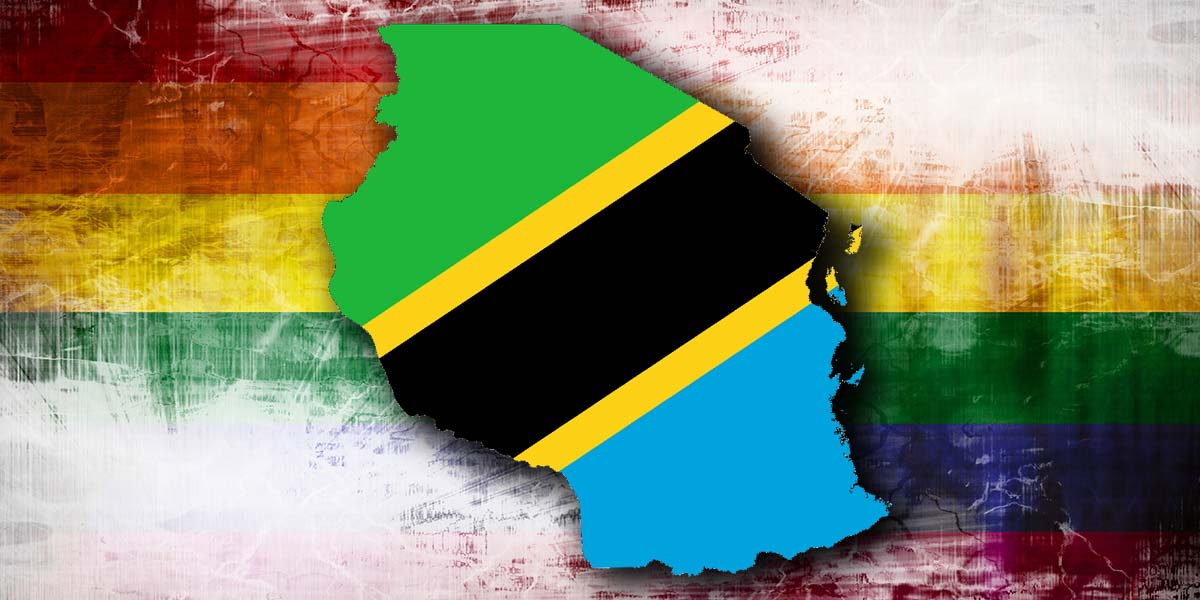Tanzania “obstructing” LGBT health and rights

A new report has exposed the impact of the anti-LGBT policies of the government of Tanzania, including arbitrary arrests and discrimination, that deny LGBT people their rights and adequate health services.
The 112-page Human Rights Watch (HRW) report, ‘If We Don’t Get Services We Will Die’: Tanzania’s Anti-LGBT Crackdown and the Right to Health, documents how since 2016 the government of Tanzania has cracked down on LGBT people and the community-based organisations that serve them.
The Health Ministry in mainland Tanzania has prohibited community-based organisations from conducting outreach on HIV prevention to men who have sex with men and other key populations vulnerable to HIV, said HRW.
It also closed drop-in centres that provided HIV testing and other targeted and inclusive services and banned the distribution of lubricant, essential for effective condom use for HIV prevention among key populations and much of the wider public.
“The Tanzanian authorities have orchestrated a systematic attack on the rights of LGBT people, including their right to health,” said Neela Ghoshal, senior LGBT rights researcher at Human Rights Watch. “Manufactured threats around the so-called ‘promotion of homosexuality’ have displaced best practices and evidence-based approaches in guiding HIV policy in Tanzania.”
The Health Ministry claims that the specialised services and provision of lubricant “promote homosexuality” and that public health centres provide discrimination-free services. Human Rights Watch research found, however, that discrimination on the basis of sexual orientation and gender identity in government health centres is common.
The report is based largely on interviews conducted with 35 self-identified LGBT Tanzanians between May 2018 and June 2019. It also draws on conversations with Tanzanian LGBT rights activists, human rights activists, and lawyers between 2014 and 2020, and on discussions with representatives of over 20 Tanzanian, regional, and international health and human rights organisations and experts, donors, and UN agencies.
“Osman,” a 24-year-old HIV-positive gay man, spoke to HRW about seeking HIV treatment at a government hospital in Dar es Salaam: “[They told me] ‘You’re a good boy, why do you have gay sex? That’s why you got AIDS, because those acts angered God.’ They also told me to stop these games and get saved, to chase out Satan, who caused me to have sex, and to find a wife, get married, and have a family.”
“Medard,” a 38-year-old gay man in Dar es Salaam, said that he avoided healthcare services because of the closure of LGBT-friendly drop-in centers: “Even if I have a health problem, I don’t have a place to go where I can describe my problem, so I just keep quiet.… I would like the government of Tanzania to allow kuchus [LGBT people] access to health services. If we don’t get services, we will die.”
“They were pressing the metal into me. It was very brutal and painful…”
When police have conducted arrests under Tanzania’s colonial-era law prohibiting “carnal knowledge against the order of nature,” they have sometimes instructed medical professionals to conduct forced anal examinations to collect “evidence” of anal intercourse. These exams have no scientific basis and are a form of cruel, inhuman, and degrading treatment that can amount to torture.
“Kim,” a gender-nonconforming person from a small town, said they’d been subjected to a forced anal examination at a government health facility:
“These doctors did the procedure of anal tests. It was by force. The police officers were there with guns, so many of them.… We went to the maternal ward where the women go and give birth. They took this metal instrument and they stick it – they penetrate it in our [anus], and it was very, very painful. And then they say ‘Cough, try to cough’ while the steel is inside our [anus], and when I coughed, they were pressing the metal into me. It was very brutal and painful. They were pressing the testicles, the penis. Everything about that testing was very brutal.”
The Tanzanian authorities have also undermined the right to health through police raids on meetings and trainings by health and rights activists and their allies, including potentially lifesaving sessions about HIV, arresting participants, said HRW. The raids have instilled fear within activist communities and among service providers and their beneficiaries.
In November 2018, when the regional official Paul Makonda threatened to arrest all gay men in Dar es Salaam, diplomatic missions and the World Bank objected. In response, President Magufuli assured the World Bank that Tanzania would not pursue such policies. But arrests and discriminatory policies and actions have continued, reveals HRW.
In April 2019, the government’s Non-Governmental Organisation Coordination Board withdrew registration from Community Health Education and Advocacy Services (CHESA), a key organisation serving LGBT people, on the grounds that it was “promoting unethical acts.” Deputy Home Affairs Minister Hamad Masauni also publicly called for arrests of gay men while visiting Zanzibar in September.
The African Commission on Human and People’s Rights, in its Resolution 275, called on African governments to end violence and discrimination on the basis of sexual orientation and gender identity. The African Commission has specifically condemned forced anal examinations as a form of torture. To arrest someone on the basis of consensual same-sex conduct between adults in private is a violation of the International Covenant on Civil and Political Rights’ prohibition on arbitrary arrest and detention.
“The Tanzanian authorities should ensure that not one more Tanzanian is arrested for being gay or trans – or for attending an HIV education session,” Ghoshal said. “Concrete steps forward should also include banning forced anal examinations and reforming health policies so that they are based on evidence, not prejudice.”
Leave a Reply